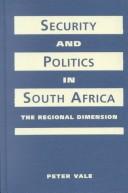| Listing 1 - 10 of 71 | << page >> |
Sort by
|
Book
ISBN: 9781685854737 1685854737 Year: 2023 Publisher: Boulder
Abstract | Keywords | Export | Availability | Bookmark
 Loading...
Loading...Choose an application
- Reference Manager
- EndNote
- RefWorks (Direct export to RefWorks)
Rapley refutes standard assumptions about African capitalism, demonstrating that an indigenous entrepreneurial class, not foreign investment, has been primarily responsible for the growth of Cote d'Ivoire's economy.
Book
ISBN: 9781685851620 1685851622 1555872093 Year: 1991 Publisher: Lynne Rienner Publishers
Abstract | Keywords | Export | Availability | Bookmark
 Loading...
Loading...Choose an application
- Reference Manager
- EndNote
- RefWorks (Direct export to RefWorks)
Examining the public enterprise record in Kenya, Grosh shows which firms performed well, which had problems, and when and why those problems developed. She concludes that, although neither privatization nor policies designed to bring firms and their managers under control, approaches gaining popularity with African policymakers, is likely to solve the problems, most of the problems are susceptible to limited and feasible reforms.
Book
ISBN: 9781685851514 1685851517 Year: 2023 Publisher: Boulder
Abstract | Keywords | Export | Availability | Bookmark
 Loading...
Loading...Choose an application
- Reference Manager
- EndNote
- RefWorks (Direct export to RefWorks)
Drawing on fieldwork in Kenya, Tanzania, and Uganda and on their comprehensive statistical analyses, the authors investigate in a systematic comparative manner the factors that have contributed to the emergence of each of the three systems and assess its respective performance with regard to a wide range of social and economic indicators.

ISBN: 9781685855192 1685855199 1588261158 Year: 2003 Publisher: Lynne Rienner Publishers
Abstract | Keywords | Export | Availability | Bookmark
 Loading...
Loading...Choose an application
- Reference Manager
- EndNote
- RefWorks (Direct export to RefWorks)
In this analysis of South Africa's postapartheid security system, Peter Vale moves beyond a realist discussion of interacting states to examine southern Africa as an integrated whole. Vale argues that, despite South Africa's manipulation of state structures and elites in the region for its own ends, the suffering endured under the apartheid regime drew the region together at the popular level; and economic factors, such as the use of migrant labor, reinforced the process of integration. Exploring how the region is changing today—as transnational solidarity and a single regional economy remove the distinctions between national and international politics—he asks whether South African domination can finally be overcome and considers what sort of cosmopolitan political arrangement will be appropriate for southern Africa in the new century.
Book
ISBN: 9781685854867 1685854869 1555875254 Year: 2023 Publisher: Boulder
Abstract | Keywords | Export | Availability | Bookmark
 Loading...
Loading...Choose an application
- Reference Manager
- EndNote
- RefWorks (Direct export to RefWorks)
Aly traces the causes of the failed attempts at economic cooperation in Africa and fashions a workable response to the continent's current economic problems.
Book

ISBN: 9781685851453 1685851452 Year: 2023 Publisher: Boulder
Abstract | Keywords | Export | Availability | Bookmark
 Loading...
Loading...Choose an application
- Reference Manager
- EndNote
- RefWorks (Direct export to RefWorks)
Critically examines the political economy of change in South Africa, considering prospects for the development of majority-rule government, the social and cultural dynamics of black South Africa, and the interaction of external and domestic factors in structuring the processes of change.
Book

ISBN: 9781685856571 1685856578 Year: 2023 Publisher: Boulder
Abstract | Keywords | Export | Availability | Bookmark
 Loading...
Loading...Choose an application
- Reference Manager
- EndNote
- RefWorks (Direct export to RefWorks)
The authors address the broad and daunting set of challenges—economic, political, and social—that must be overcome if South Africa is to become a stable democracy.
Book
ISBN: 9781685856526 1685856527 Year: 2023 Publisher: Boulder
Abstract | Keywords | Export | Availability | Bookmark
 Loading...
Loading...Choose an application
- Reference Manager
- EndNote
- RefWorks (Direct export to RefWorks)
Makinda addresses both the internal sources of the Somali tragedy and the external factors that served sometimes to exacerbate and sometimes to alleviate it.
Book
ISBN: 9781685852498 1685852491 1555871577 Year: 1989 Publisher: Lynne Rienner Publishers
Abstract | Keywords | Export | Availability | Bookmark
 Loading...
Loading...Choose an application
- Reference Manager
- EndNote
- RefWorks (Direct export to RefWorks)
The seven women who are the focus of the book describe, with dignity, candor, and often humor, their own views of the often turbulent historical and sociocultural forces influencing their individual and collective lives.
Book
ISBN: 9781685855079 Year: 2023 Publisher: Boulder
Abstract | Keywords | Export | Availability | Bookmark
 Loading...
Loading...Choose an application
- Reference Manager
- EndNote
- RefWorks (Direct export to RefWorks)
Was South Africa's Truth and Reconciliation Commission (TRC) a "miracle" that depended on the unique leadership of Nelson Mandela and Desmond Tutu? Or does it provide a working model for other traumatized nations? Addressing these questions, Lyn Graybill explores the political origins, theological underpinnings, and major achievements of the world's most ambitious truth commission—an institution that offered indemnity to perpetrators of gross human rights abuses, and a process that urged victims to forgive. Graybill distills in one concise and very readable volume a vast amount of information on the TRC, including discussions of a number of groups—the media, religious communities, and the medical and business sectors—that came under the scrutiny of the commission. She also addresses the theory and practice of forgiveness and the relative advantages of amnesty vs. prosecution. She concludes with an indictment of the ANC government's failure to enact the commission's recommendations for substantial reparations to victims and with an overview of NGO efforts to continue the reconciliation process.
| Listing 1 - 10 of 71 | << page >> |
Sort by
|

 Search
Search Feedback
Feedback About UniCat
About UniCat  Help
Help News
News